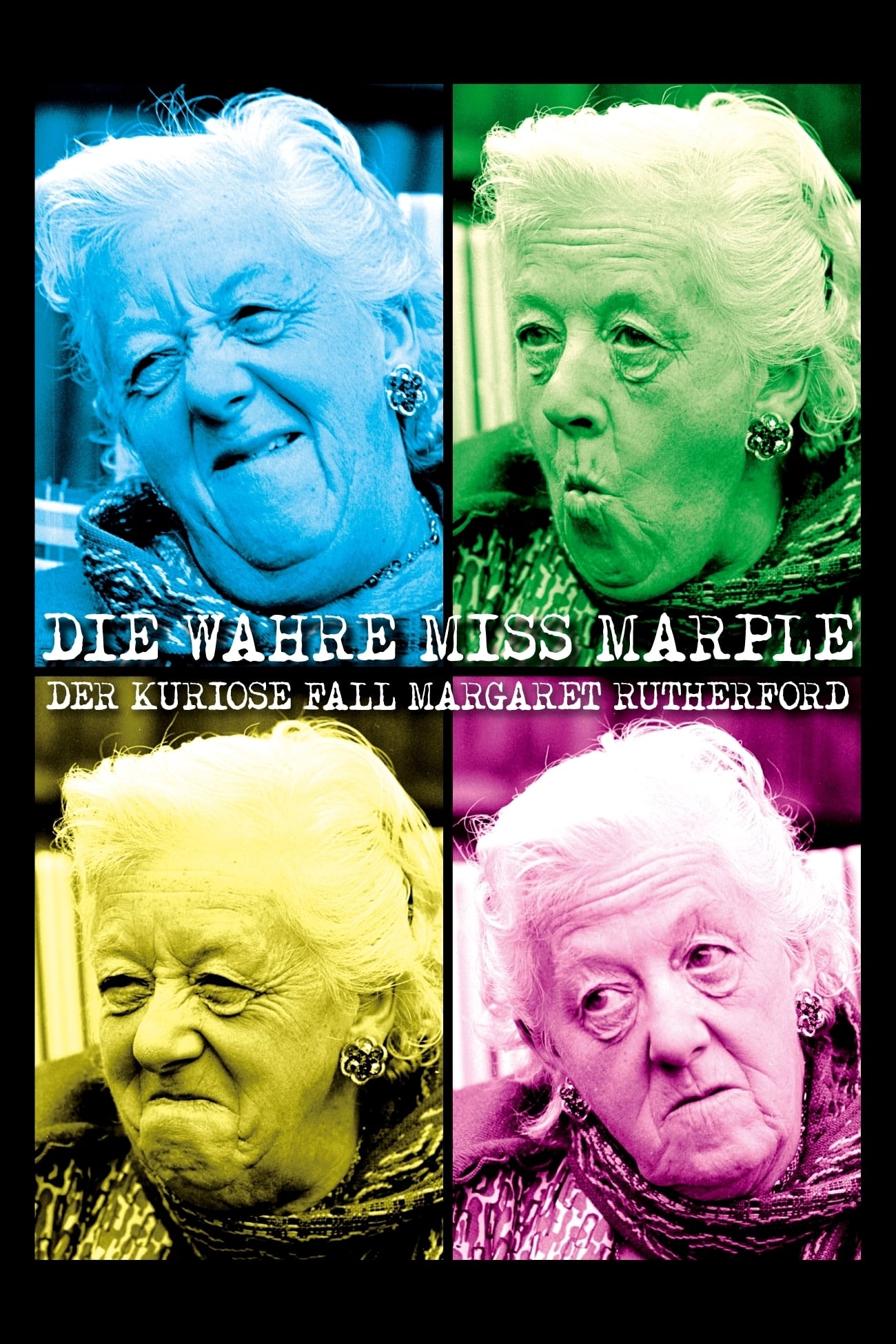
The true life story of Margaret Rutherford (1892-1972) is in fact much more eccentric than the most famous fictional role she ever played: Miss Jane Marple, Agatha Christie's amateur sleuth. Rutherford's version was the very first appearance of Miss Marple on the big screen and it was far removed though from the petite, upper middle-class lady in the detective novels.
22 Feb Truly Miss Marple: The Curious Case of Margaret Rutherford (2012)
Unembellishments
If you just come to this without the Christie context, you will be appalled. If you come understanding Christie, you will be doubly appalled.
Here we have a quirky actress who plays a single quirky character. The character has some appeal in most of the fictional contexts we encounter. In those films, we suspect that we are not seeing much acting, and just an inner eccentricity given permission to be released.
It is only mildly rewarding to spend the time of this biography learning so. The curious thing is that while we get the woman in her films fairly unembellished, in this presentation there is all sorts of unnecessary crockery that surrounds the basic content, consisting of interviews. We have no idea, for instance, why the filmmaker decides to put the cooking of bacon and egg over the credits, or why he insists on the clackers at the beginning of each interview. Perhaps he wants us to think he is similarly quirky. These embellishments are so contrary to the subject’s existence in the world, it is almost as if there is a conspiracy to hide the woman behind imperfect windows into who she was.
The interviews are with apparently untrustworthy narrators who do provide information but with mixed perspectives and so varied motivations that there is no coherence whatever. We do get some salacious details: some goober thinks the couple never had sex. Another strange woman talks about the scandalous transexual groupie. Another — a policeman — reports on the still missing stolen Oscar. We hear about parental tragedies.
So, just on the merits of the bio, this is as bad as it can get allowing for reasonable sound editing. But there is a deeper story here, only obliquely noted.
Christie changed the world of narrative, building on Holmes to invent a form where the reader and writer are in a contest. The writer has to play fair within strict rules, and the game is to have us follow open narratives. These are generally not false narratives, but parallel worlds. At the end, our Marple or Poirot will work with us to reinvent much of what we knew. The story is told twice: once on a layer of paper stereotypes and rigid English life patterns, and once at the end over top of that, layered if you will.
I’d say nearly every film now has some of this folding in it (post Welles), and we celebrate the twists and folds more than the story itself.
Central to this construction is the rigidity of the worlds we are given in our two detectives. Poirot is high functioning autistic and firmly rooted in a vain Belgian platform, observing the strange layers of British society. Marple is the obverse — it is essential that she be not comic, nor particularly eccentric. She has to be typical. As with Hickson’s Marple, she’ll recall with a wry smile while knitting that this is like what happened with Jimmy the stableboy back in the village. She maps only her past narratives which we assume are repeated manifold in other villages — the collected stories defining what it is to be British.
We don’t know how the Jimmy narrative thread guides us until the big reinvention at the end. All this is to say that Rutherford’s Marple is from a British stage comedic tradition and contrary to what works in the books. Christie hated it until she realised that it drove book sales.
So here we have a failed biography of a failed Marple.
Posted in 2023
Ted’s Evaluation — 1 of 3: You can find something better to do with this part of your life.


No Comments